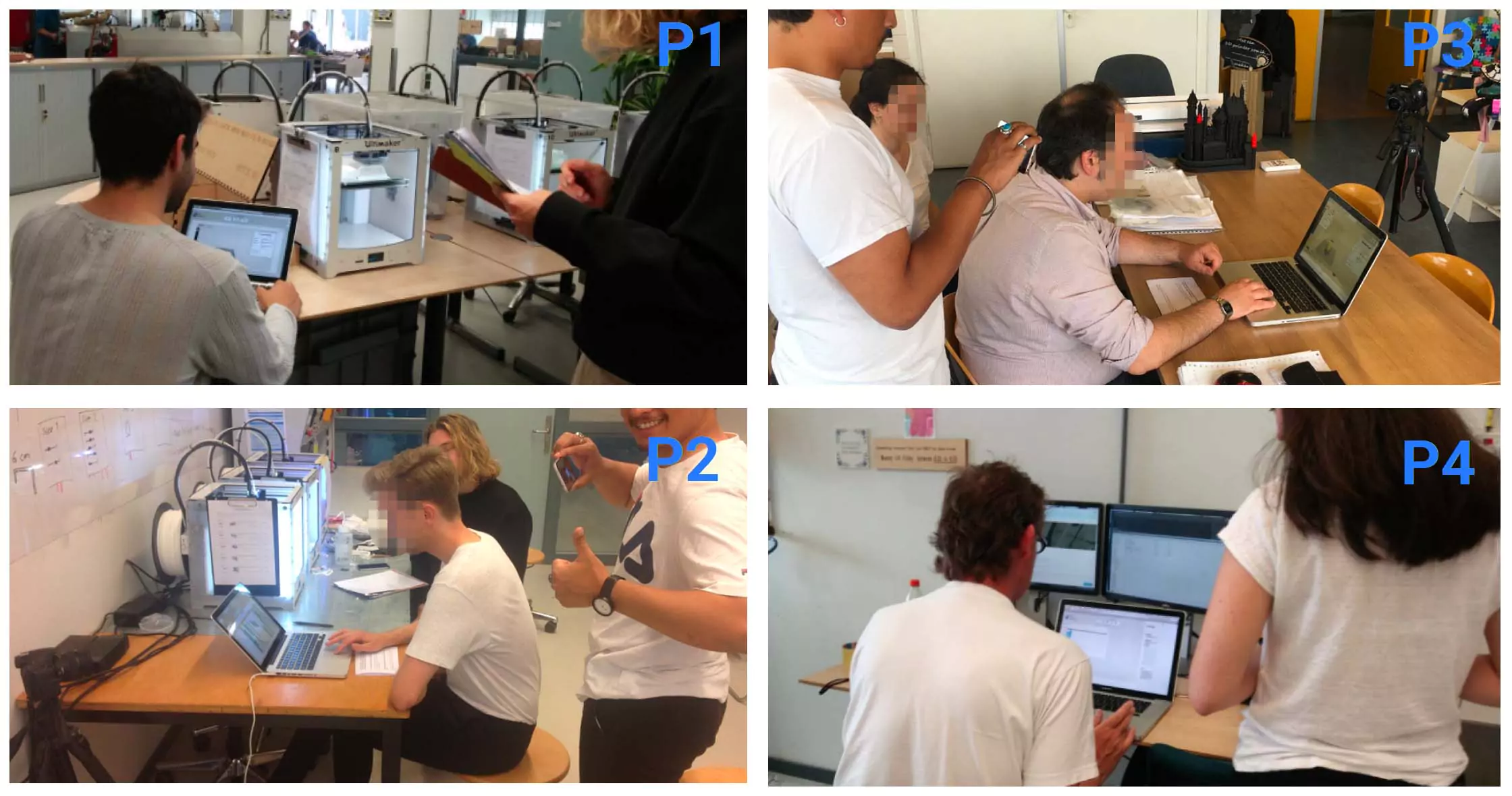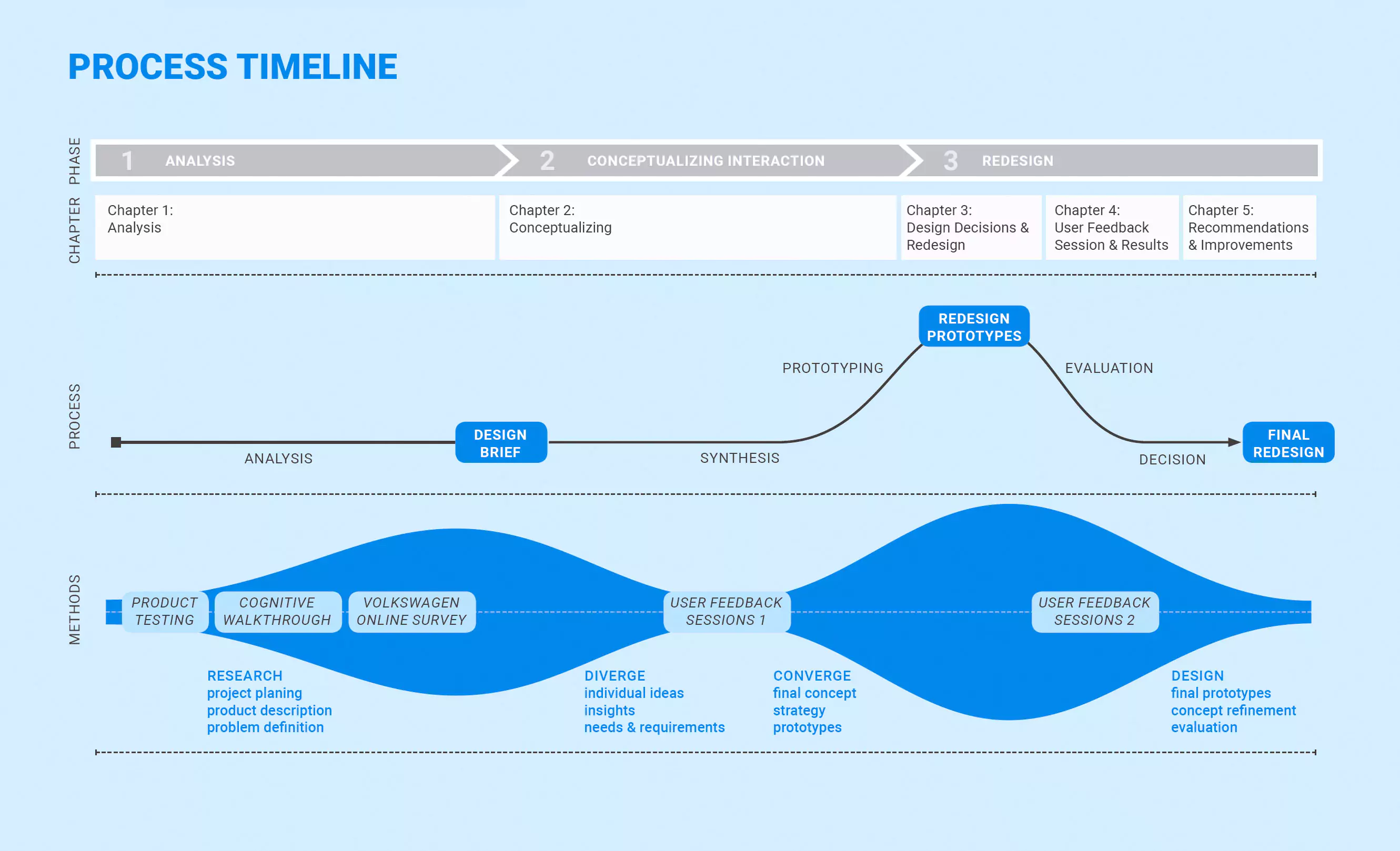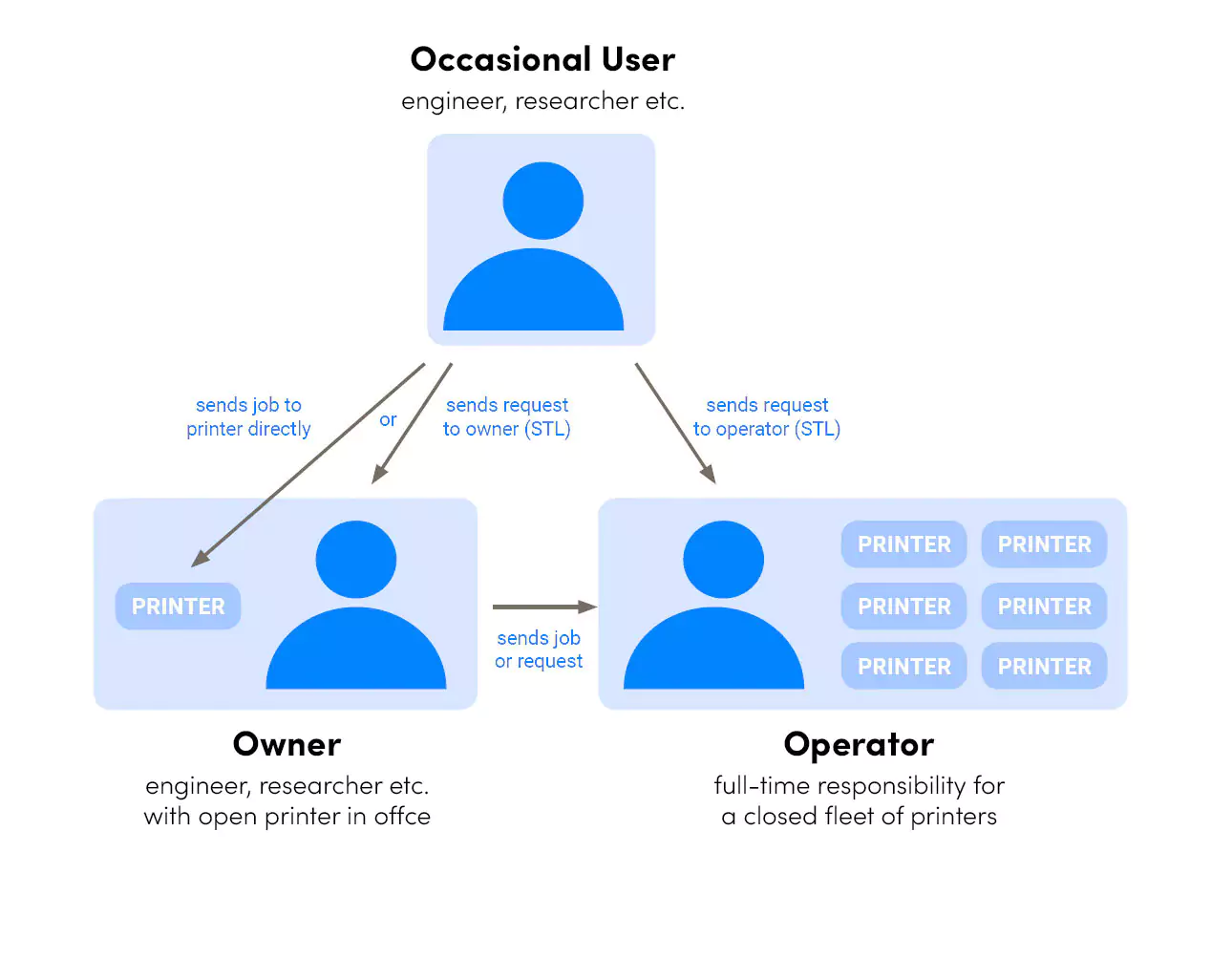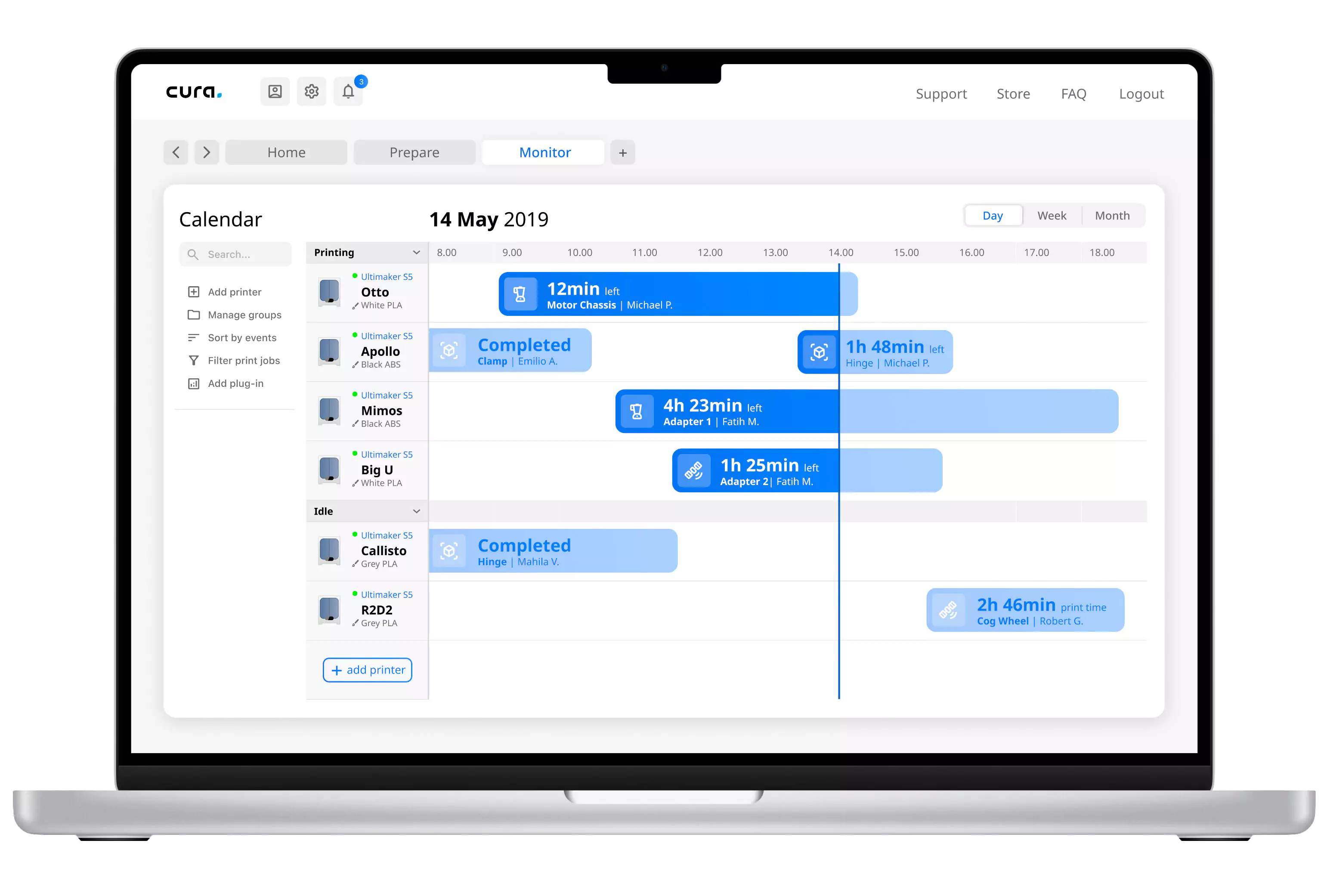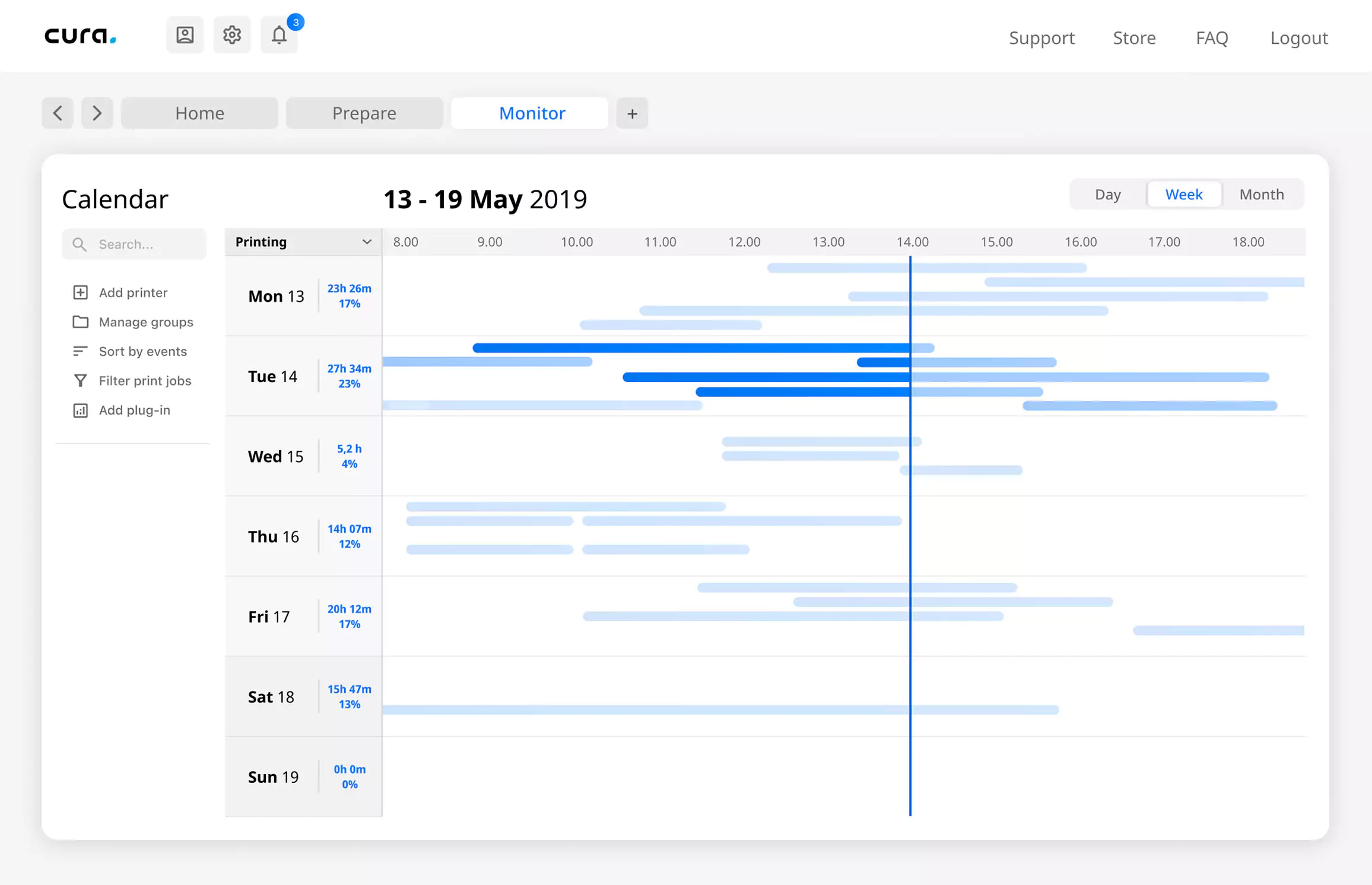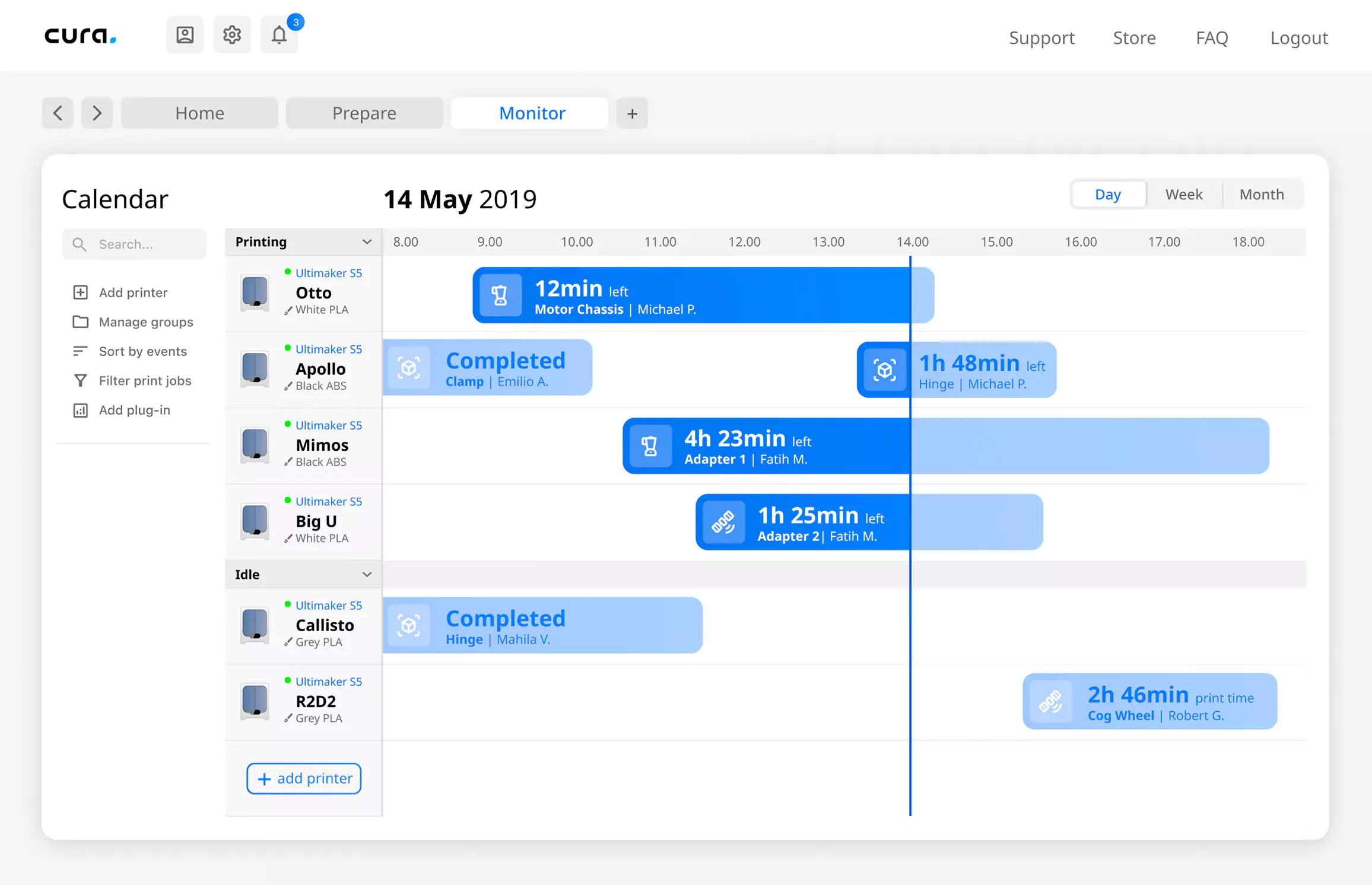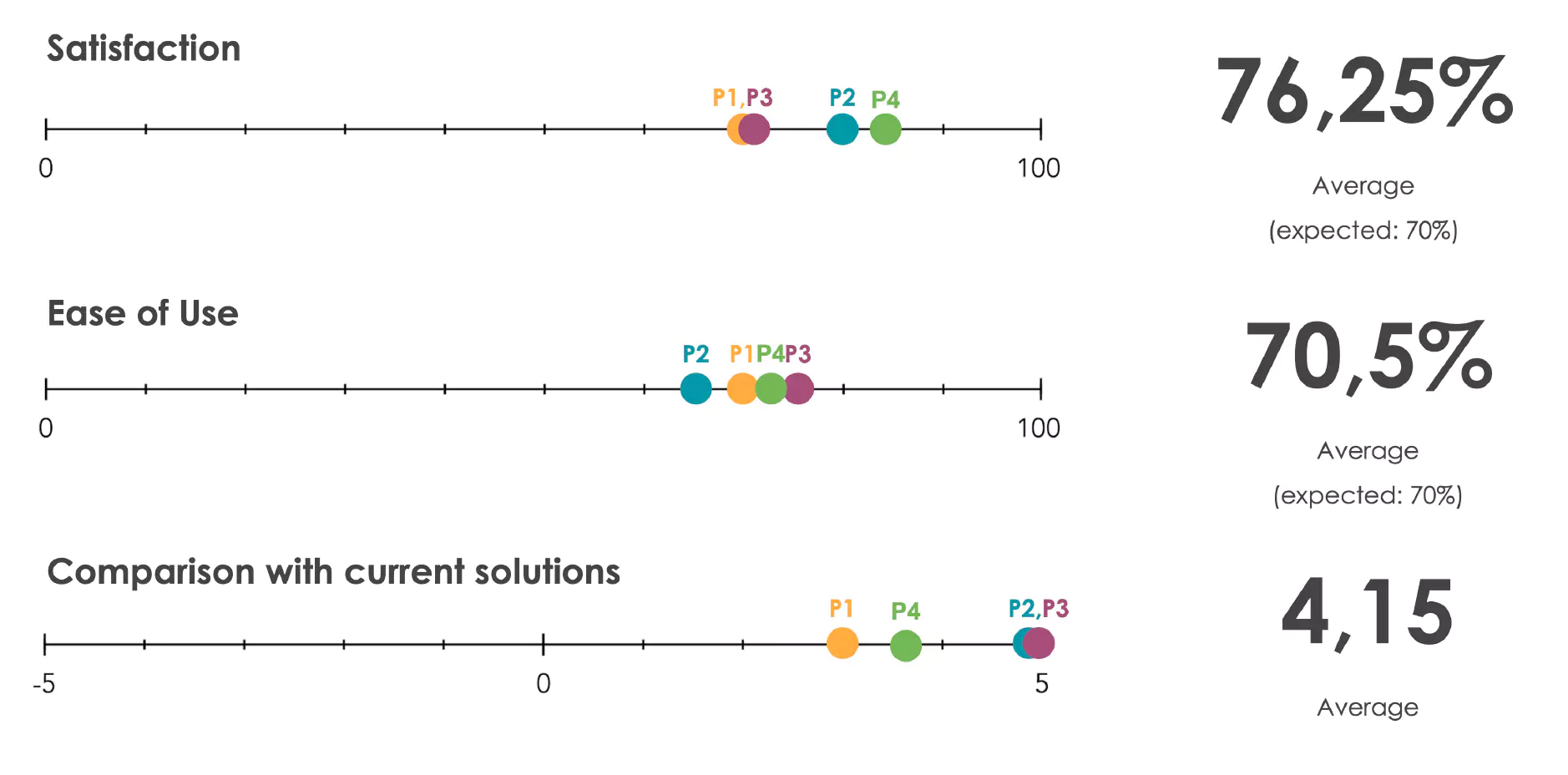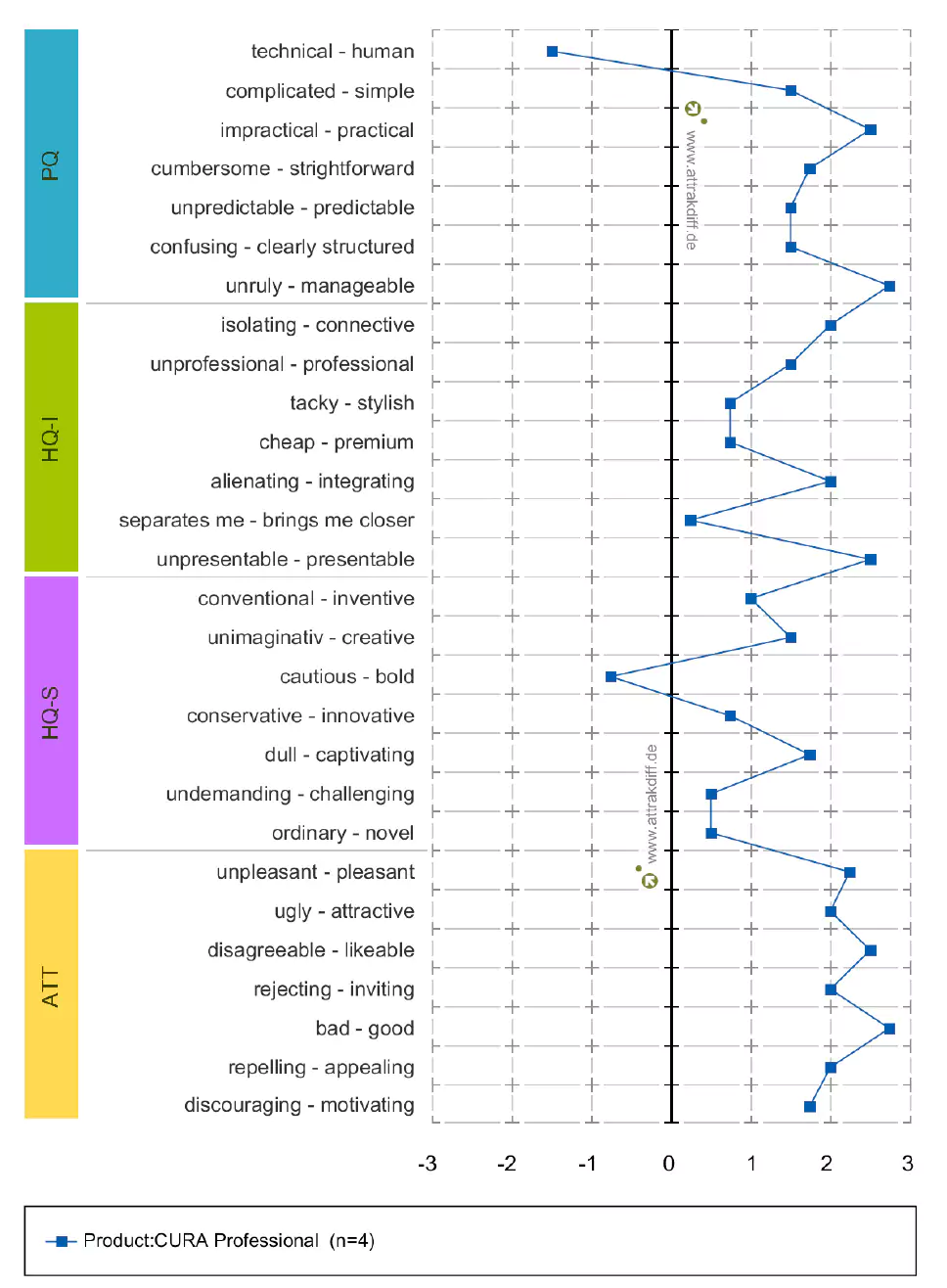Context
While in the past years, the interest of 3D printing has mainly been in desktop printers, it constantly shifts to new industrial use cases like series production nowadays. Along with the shift to industrial implementation comes an increased complexity of handling printer networks where multiple instances work within the same ecosystem.
Challenge
Ultimaker was looking to improve their hardware and software solutions to better fit professional users in industrial setting and solve the challenges they are facing when managing a fleet of printers.
Response
We developed Ultimaker’s network queueing system for professional use tailored to various user profiles and their needs in a multi-partied ecosystem. Focus was on aspects of printer grouping for more flexible and efficient work environment setup, adapting the queueing process to the needs of diverse stakeholders, and making interactions with the software more expedient to the specific user profiles.
We identified 3 common usage patterns
Researching the domain, we identified common usage patterns which were consolidated into 3 distinct user profiles.
Our analysis revealed the existence of clear-cut 3D printing scenarios in a professional setting. Employees with varying experience levels and responsibilities indicated substantially divergent demands on the scope and level of detail of the software.
Monitoring the entire fleet in real time.
Users can easily control and keep track of their entire fleet in real time.
Cura Connect enables users to simply schedule print jobs, remotely monitor and control their 3D printers, track print job progress, and manage print queues. In this way teams with multiple users can collaborate at maximum efficieny. The software is a powerful tool that helps industrial users maximize the productivity and output of their 3D printing operations, while minimizing downtime and costs.
Usability testings helped improving the design throughout the process.
3D printing amateur and expert users tested the software
They identify design inconsistencies and usability problems within the user interface of our prototype‘s core areas. We wanted to get a picture of the user-performance and user-satisfaction levels while interacting with the prototype by assessing across several metrics. AttrakDiff, PrEmo, observation, questionnaires.
